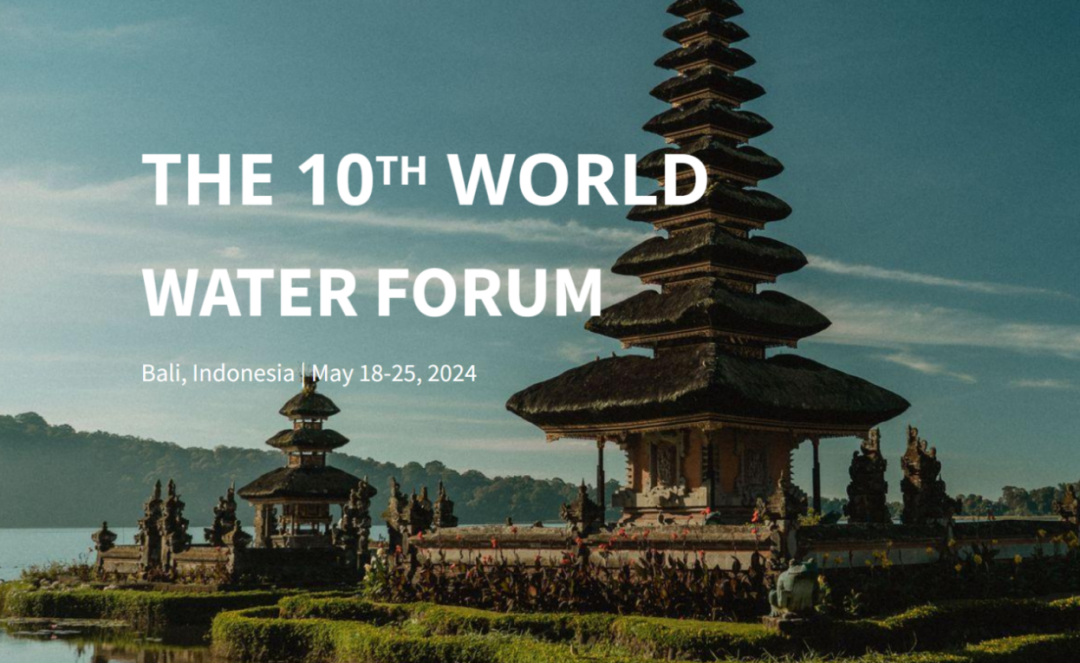 IFF Co-chair Fires Starting Gun on World Water Forum in Bali
IFF Co-chair Fires Starting Gun on World Water Forum in Bali(Yicai) July 1 -- The 10th World Water Forum that ran in Bali, Indonesia from May 18-25 convened global leaders and experts to underscore the key importance of water, raise its ranking on the political agenda, and solicit suggestions for its better use and management.
Dr Han Seung-Soo, a former Prime Minister of South Korea and Co-chairman of the International Finance Forum (IFF), together with other Leadership Council Members, engaged in far-reaching panel talks throughout the week-long event that stressed the crucial need for political involvement and investment in climate-resilient water and sanitation initiatives.
The forum highlighted the urgency of setting water and sanitation at the highest political rung. Held concurrently with the World Water Forum, the Bandung Spirit Water Summit provided a specialty roundhouse for world leaders to discuss the political ramifications of water and sanitation. This summit is a legacy of the trailblazing Asia-Africa conference hosted in Bandung in 1955, which enunciated pioneering principles of justice, equality, and human rights for the Global South at the close of the Colonial Era.
“We are in a global crisis. A crisis of peace, food, energy, health, climate change, biological and natural hazards, immigration, human rights, and social harmony and integrity that cannot be addressed without due attention to water,” IFF member Dr Han Seung-Soo, Chair of the Bandung Spirit Water Summit, kicked off the event with this stark warning in his opening remarks.
Other keynote speakers included representatives from the government of Indonesia the Asian Development Bank, and other luminaries, who pointed to existential crises such as thawing glaciers, superstorms unleashing devastating floods, and long-term droughts that imperil water security, while citing the more than 2 billion people worldwide who have no access to suitable sanitation.
The Bandung Spirit Water Summit further presented a special High-Level Panel Session that sought to spur action to guarantee universal provision of water and sanitation. Participants held vigorous talks, restating the need for political resolve, multi-polar decision-making, and sound governance in achieving a universal supply of water and sanitation.
“The Water and Peace session was particularly thought-provoking, covering important and challenging topics, including the issue of water in armed conflict,” said Moina Ahajji, a water and habitat engineer with the International Committee of the Red Cross.
Indispensable investment
This year’s round featured high-profile personages such as former President of Chile Laura Chinchilla, ex-President of Costa Rica János Áder, and Yves Leterme, a previous Prime Minister of Belgium, all of whom who confided their experiences in advancing water and sanitation initiatives during their respective terms in office. It also welcomed representatives from the United Nations Children’s Fund (UNICEF), the World Bank, and the government of Indonesia, along with various youthful experts.
Global leaders, current and future, should adopt the stance of viewing water and sanitation not just as a mere public expenditure, but as an essential investment in the health and economy of each nation, stated Chinchilla, who chaired the session.
Other noteworthy sessions included ‘Finance Delivery Models that Serve the Unserved,’ which concentrated on creative funding to develop and sustain water supplies. Participants from the African Ministers' Council on Water and other experts shone the spotlight on successful approaches and the importance of looping in political leaders to implement tested solutions. UNICEF hosted a breakfast attended by members of the governments of Indonesia and Cambodia, which advocated for concerted action to ensure that water and sanitation are enshrined in climate action agendas.
One session, themed ‘Realizing SDG 6 in Fragile and Humanitarian Contexts,’ grandstanded practical instances of coupling relief initiatives with long-range development targets, and addressed the need to preserve essential services and multi-party cooperation to bolster resilience.
Other bilateral meetings with assorted delegations targeted deployment of finance and private sector investment to safeguard water security. The Special Water Envoys from Finland and France, as well as Sri Lankan Prime Minister Jeevan Thondaman, also attended these talks.
As the curtain closed on the 10th World Water Forum, the consensus was unmistakable: Tackling the world’s water and sanitation crises will demand a forceful reaction, exhaustive planning, unflagging political dedication, and targeted strategies to ensure safe water and decent sanitation for all.
The International Finance Forum (IFF) is an independent, non-profit, non-governmental international organization established by more than 20 countries and international organizations in 2003.